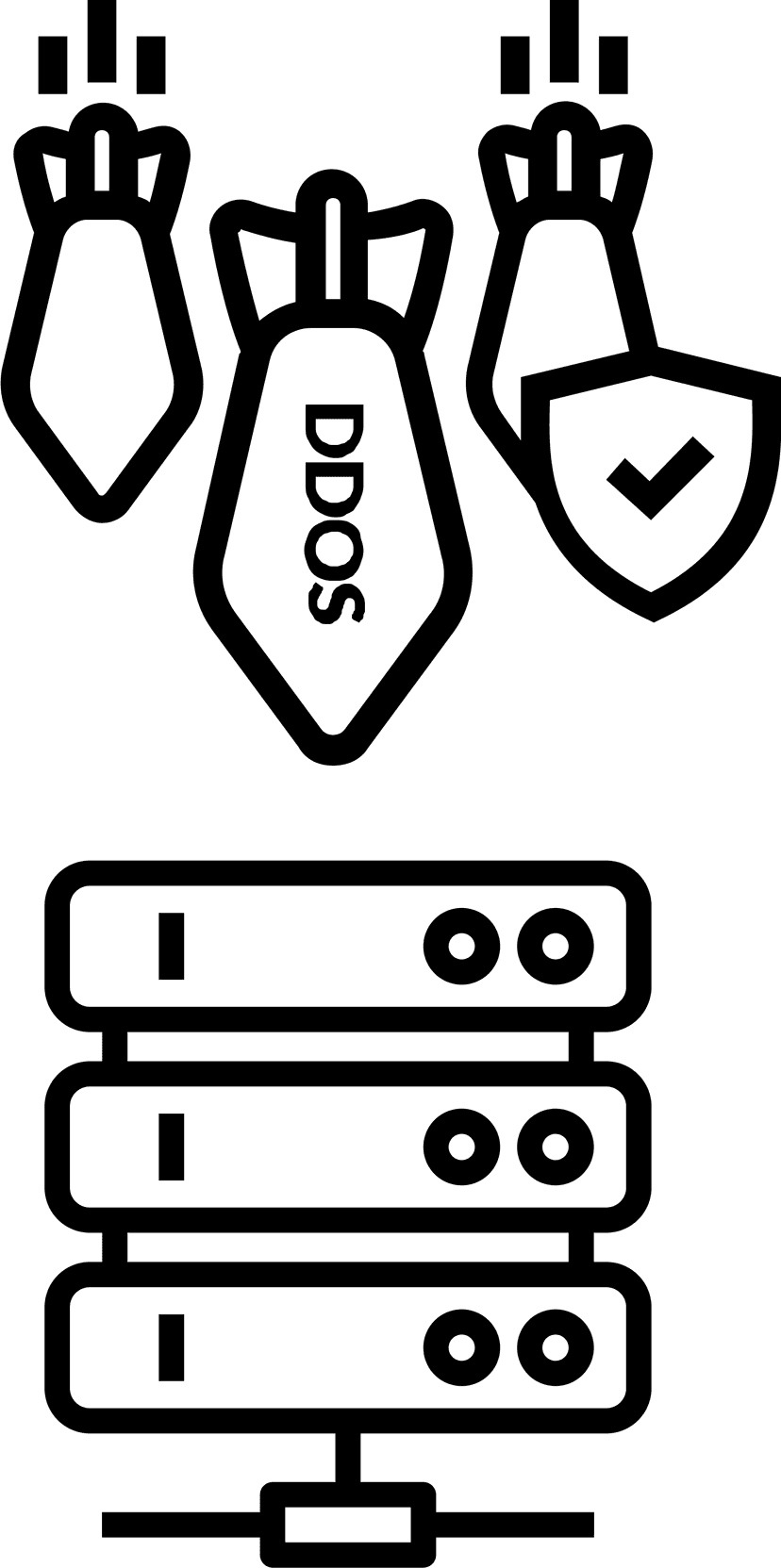DDoS Attack

What is DDoS?
Definition:
A distributed denial-of-service (DDoS) aims to overwhelm the devices, servers, and networks of its intended target with fake internet traffic, rendering them inaccessible to or useless for legitimate users. It is a type of cyber attack.
Analogy:
A DDoS attack is like an unexpected traffic jam clogging up the highway, preventing regular traffic from arriving at its destination.
Imagine you are driving down a road that is one-way and has no cross-roads.
All of the sudden, a line of trucks starts driving across the road, blocking you from moving forward. Maybe every so often, a car can squeeze through between the trucks, but by in large, all of the traffic is getting held up by this unexpected traffic that shouldn't be there.
Nobody could have planned accordingly to take a different route because that line of trucks is not supposed to be there.
In other words:
A DDoS attack is a cyber-attack that blocks and overwhelms a website with fake users, preventing real users from accessing the site.
Why is a DDoS attack important?
It's one thing to know what a term means, but that is worthless if you don't know why you should know what a DDoS attack is in the first place. Let's break down the importance of this tech term based on two high level categories. We'll walk through an explanation as well as provide a score, 1-10, that shows you how much you should care about DDoS attacks.
Pre-Product: 1/10
The first will be if you do not have a product yet. This means that you don't have a physical product. Maybe you're in the ideation phase, or maybe you're almost ready to start development. Whichever it is, we'll get into why a DDoS attack is important and why you should or shouldn't care about it if you do not have a product.
If you don't have a product, you have nothing to worry about. You can't get attacked if you have nothing to attack in the first place!
Live Product: 6/10
The second category is if you do have a live product. Maybe you just launched your business or maybe it's been live for years and you're continuing to improve its quality. Regardless of the scenario, if your product is live, DDoS attacks carries a different weight.
It is important to understand this concept so you know how to protect against it. The common way people will protect against DDoS attacks is through services like Cloudflare, so talk to your development team to ensure you're protecting yourself from a potential threat.
Examples of a DDoS attack
So you know what a DDoS attack is, by definition. You know if you should care about it or not depending on your situation as a business/company/product. To dig in deeper, we will walk through some examples so we can make sure you really have a solid grasp on DDoS attacks.
Three famous DDoS attacks:
According to the Poneman Institute, a DDoS attack, on average, can cost a company $22,000 per minute of downtime. For larger companies, this cost can scale all the way up to millions of dollars per hour! We're going to walk through three of the most famous DDoS attacks in history. While it is unlikely you will face a DDoS attack at this scale, what is important to note is how detrimental this cyber-attack could be to a business.
- AWS DDoS attack in 2020
In 2020, AWS was hit with a DDoS attack that sent shivers through its user's spines. The implications of a server conglomerate like AWS getting targeted by cyber-crime is massive. Companies host their sites, applications, data, and more utilizing AWS. The attack targeted a specific, unidentified, AWS customer. The attack lasted for three days. - Google DDoS attack in 2020
In 2020, Google was hit with the largest DDoS attack in modern history. The attackers used several networks and targeted thousands of Google IP addresses. It lasted for 6 months and was four times larger than any other attack recorded. - GitHub DDoS attack in 2018
In 2018, Github, one of the leading code repository companies was hit with a mammoth DDoS attack, lasting for a total of 20 minutes. While the GitHub team was well prepared, even they required extra assistance in fighting the attack.
Key Takeaways:
- A DDoS attack is a cyber-attack that blocks and overwhelms a website with fake users, preventing real users from accessing the site.
- If you don't have a product, you don't need to stress about this.
- If you do have a product, you should make sure you have proper cyber-security practices in place.
- Even the largest organizations get hit with DDoS attacks - nobody is 100% safe from these costly attacks, so be sure to plan ahead.

